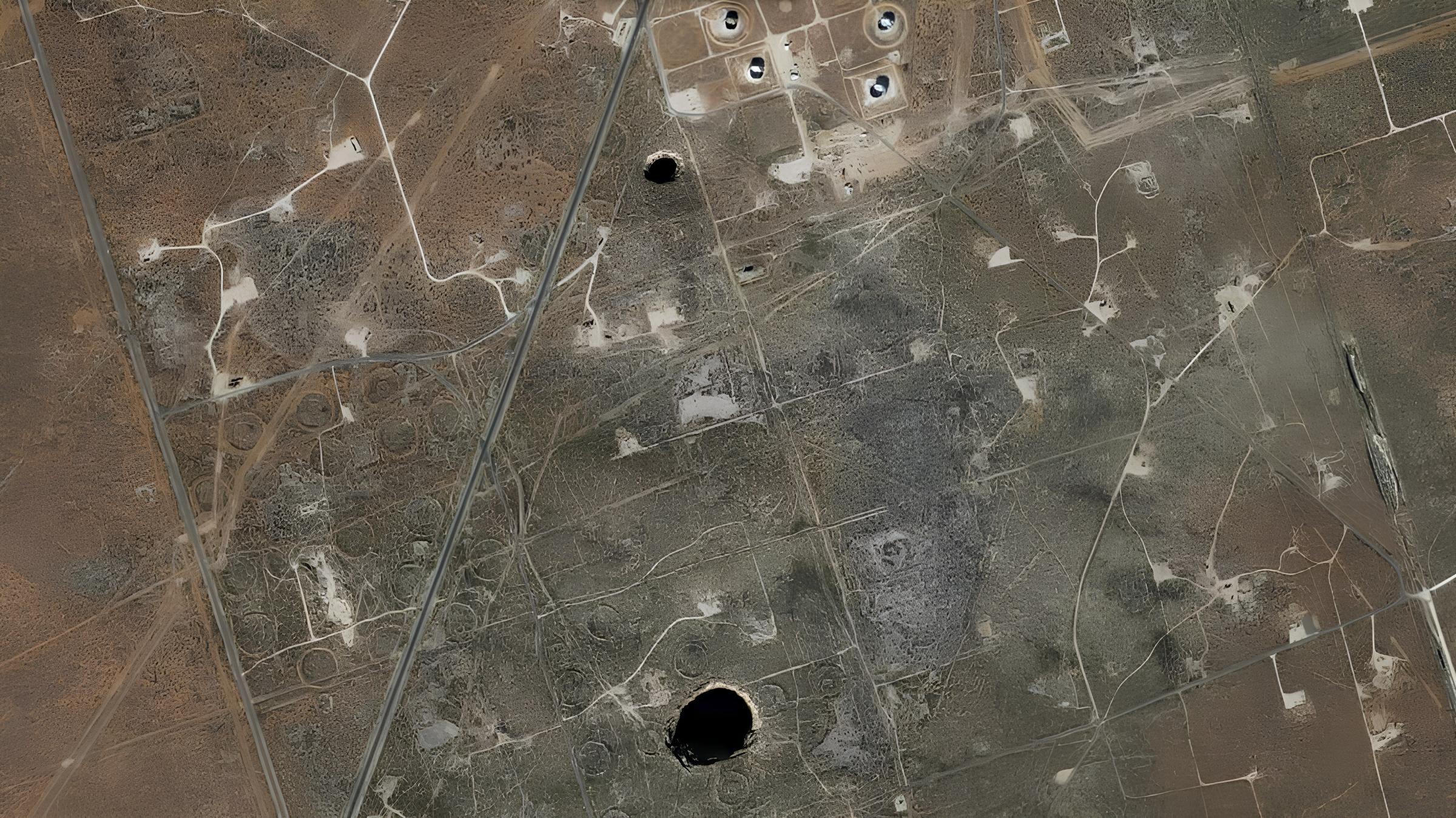In Texas, the Wink Sinkholes, first appearing in 1980, have become a growing concern due to their increasing size and potential for catastrophic damage. These sinkholes, located near the towns of Wink and Kermit, have expanded significantly over the years, raising alarms among scientists and locals alike.
The first sinkhole, Wink Sink No. 1, emerged near the Hendricks oil well 10-A and has since grown to over 117 meters in diameter. Its counterpart, Wink Sink No. 2, appeared 22 years later near Gulf WS-8 supply well and now spans an astonishing 361 feet across. The expansion of these sinkholes is attributed to decades of oil and gas drilling in Winkler County, particularly between 1926 and 1964, which has led to an unstable landscape.
Researchers from Southern Methodist University have expressed concern over the increasing instability in the areas surrounding the sinkholes. Satellite imagery and research suggest that the two sinkholes could eventually unite, leading to even more significant risks. The potential for a catastrophic collapse is a real threat, as the intrusion of freshwater into underground salt layers could accelerate the sinkholes’ expansion.
Despite the danger, the Wink Sinkholes have attracted curious onlookers, though officials have fenced off the area due to safety concerns. The possibility of the sinkholes merging is a matter of when, not if, according to scientists, making it a pressing issue for the region. The situation in Wink serves as a stark reminder of the long-term environmental impacts of extensive drilling and the need for vigilant monitoring and preventive measures.






